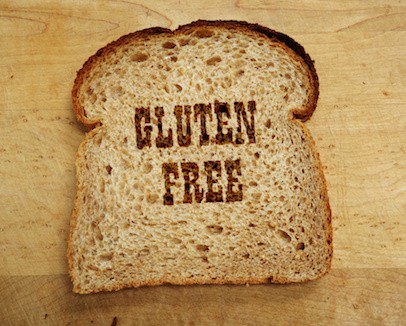Awareness of food allergies and dietary restrictions have been on the rise. With all the clamor about gluten-free this and gluten-free that, here are some things you need to know if you’re going to offer gluten-free communion.

I went to the grand opening of a church plant in San Francisco years ago. I’d probably heard of gluten-free bread once or twice before in my whole life, but didn’t really know what it was. I elbowed my wife when communion was served with gluten-free bread and Napa wine. I thought it was a just a trendy, weird vegan thing or something.
Fast forward several years to the time when 2 members of my immediate family were diagnosed with Celiac Disease. Now, if it’s not gluten-free communion, they cannot participate in that part of the worship service.
Gluten is a naturally-occurring protein found in wheat, barley and rye (and a few other rare grains). So there’s the problem – what bread or communion cracker isn’t made with wheat? And contrary to my prior ignorance, vegans can eat gluten (it’s plant-based).
Who Needs Gluten-Free Communion
There are at least 2 types of people that need gluten-free communion for similar but different reasons:
The Gluten-Sensitive
Some research suggests that as many as 18 million Americans have a sensitivity to gluten. I’m in this category. If I eat gluten, I have digestive discomfort for the rest of the day. That’s just the kind of Pavlovian conditioning you want all your congregants to have, right?
The Celiac
It’s worse for those who suffer from Celiac Disease, though. Celiac is an auto-immune disorder. When a Celiac eats gluten, any gluten, their body begins to attack itself and nutrition absorption gets blocked. Many Celiacs suffer for years before they get a diagnosis, by which point they can’t tolerate even gluten-free food that’s been cross-contaminated by wheat.
Just less than 1% of the US population has Celiac Disease. So if you have 100 people in attendance on any given Sunday, you’re likely to have at least 1 Celiac in your midst (whether they know it or not). And there’s a genetic component to the disease, so it can run in families.
How to Offer Gluten-Free Communion
I’ve been gluten-free for more than 5 years now. And I’ve participated in churches that have addressed this issue in different ways. Basically, there are 2 approaches if you’re not going to ignore the issue entirely:
Half and Half
Some churches accommodate people who need gluten-free communion by offering separate but equal communion options. This can be a great solution if done well. Unfortunately, it’s hard to do this well for the Celiac. Read on.
Be Conscious of Cross-Contamination
My Celiac family members have very few dining options. Even at the restaurants that offer dishes that don’t have any gluten-bearing ingredients, they can get sick from careless handling of the food. Did the cook handle wheat bread and then prepare our food without washing hands or changing gloves? They just made us sick. Did they use the spoon to spread the rice or beans on the last guy’s flour tortilla and then put that spoon back into the pot? Our “gluten-free” burrito bowl will make us sick.
Here’s how to do gluten-free (GF) communion wrong:
- offer GF crackers but have everyone dip in a common cup (intinction)
- offer GF crackers but put it side-by-side in the dish with the wheat crackers
- create a dedicated GF station but neglect to train your communion prep volunteers about avoiding cross-contamination
- make your own matzoh out of oats (which ought to be GF but usually come cross-contaminated from the mill) instead of certified gluten-free oats
- make your own bread or crackers in a kitchen that isn’t dedicated to GF cooking (wood and plastic implements do a great job of carrying gluten even after washed)
Completely Gluten-Free Communion
The best sure-fire way to make communion safe is to go completely gluten-free. GF crackers that could substitute for matzoh are easily found in stores and online. GF breads are admittedly not quite the same yet, but there are some options that could work.
When our pastor started asking around, he discovered an usually high concentration of us that were gluten-sensitive or Celiac. He had no idea that as much as 5% (my estimate) of our congregation weren’t taking communion each week but wanted to. Our church has gone completely GF and it’s working out great.
On behalf of my family, thank you for considering offering gluten-free communion that wouldn’t send us home sick.
